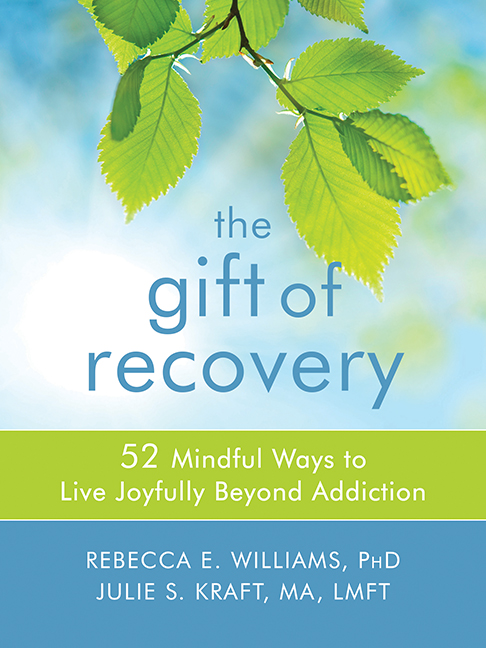By Rebecca Williams, PhD, and Julie Kraft, LMFT, authors of The Gift of Recovery
Many therapists treating clients in recovery from addiction are surprised to find their clients are sober but still come to sessions sad, lonely, angry, and anxious. Sometimes your client’s negative and punishing thoughts can feel like a runaway train careening through the therapy room. Feelings of well-being and joy may seem unreachable. Getting sober does not automatically lead to joy for some clients. Mindfulness in recovery offers a few skills you can bring into your therapy to help your clients experience joy again. The skills spell out BEGIN because the best way for your clients to spark joy again is to begin today.
B. Breathe. Help your clients slow their negative thoughts by focusing on the breath. Practice slowly inhaling and exhaling three times with them in the therapy session; encourage them to use the breath between sessions to interrupt negative thoughts.
E. Empathy. Being aware of how others are feeling can certainly help with personal well-being and connection. Remind your clients that they don’t have to fix anyone else’s feelings. Have your clients notice what it might feel like to walk in someone else’s shoes.
G. Gratitude. Experiencing and expressing gratitude is exceedingly powerful on the road to joy and well-being. Have your clients tell you five things they are grateful for today. This may be challenging at first, but stay with it, and reap the rewards.
I. Imagine. Have your clients imagine a time when they were joyful before their addictive behavior took hold. Help your clients explore this optimistic time in their lives without judging it. Just observe. See if there are ways your clients can bring the joyful parts of themselves back to life.
N. Nature. In this last step, have your clients commit to engaging with nature at least one time during the week. Decide if they will mindfully go for a walk, sit in the sunshine, notice the birds and trees, or breathe in the ocean air. Research* shows that being in nature, even for brief (fifteen-minute) periods, improves psychological well-being.
Your recovering clients absolutely have the capacity to feel calm, relaxed, and joyful with a little practice. Engage them with these tips and continue the journey with Rebecca and Julie’s pocket wellness coach, The Gift of Recovery: 52 Mindful Ways to Live Joyfully Beyond Addiction (New Harbinger).
 Rebecca E. Williams, PhD, is a clinical psychologist specializing in healthy recovery from mental illness and addiction. She is associate clinical professor of psychiatry at the University of California, San Diego, and program director at the Veterans Affairs San Diego Health Care System.
Rebecca E. Williams, PhD, is a clinical psychologist specializing in healthy recovery from mental illness and addiction. She is associate clinical professor of psychiatry at the University of California, San Diego, and program director at the Veterans Affairs San Diego Health Care System.
Julie S. Kraft, MA, LMFT, is a licensed marriage and family therapist. Julie is an adjunct faculty member at the University of San Diego, where she teaches systemic treatment of substance abuse.

 2024 Peace Playbook: 3 Tactics to Avoid Clashes with Your Partner
2024 Peace Playbook: 3 Tactics to Avoid Clashes with Your Partner